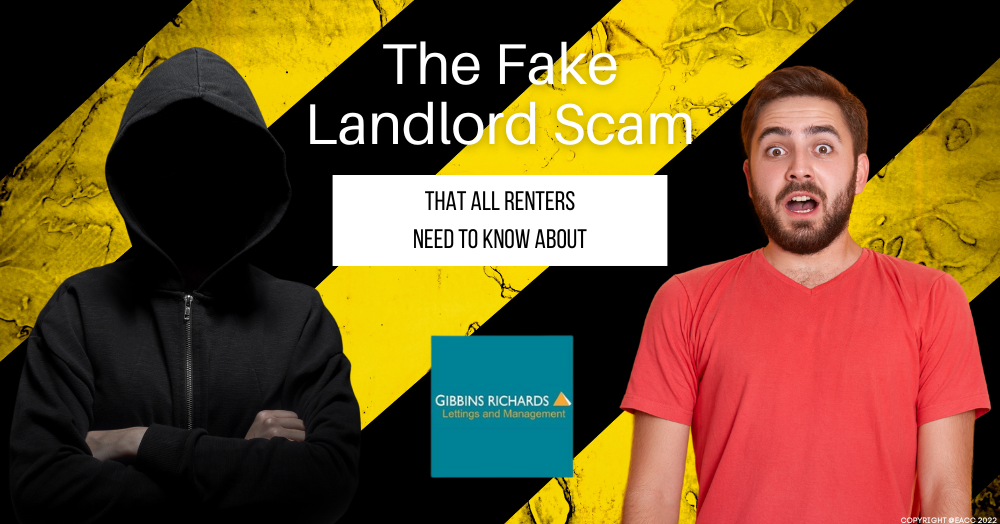Blog
- Details
- Hits: 547
How to Protect Your Rental Properties during a Recession
Recessions hit everyone right where it hurts: in the pocket. Everyone feels the pinch as prices rise and the cost of living spirals. Homeowners face the prospect of higher mortgage rates and rising bills. But what about landlords? Are they the Teflon of a credit crunch?
According to finance experts at Investopedia, landlords not only survive recessions, but they thrive, as renting becomes more appealing than buying in the economic downturn. After all, owning rental properties guarantees them an income, or does it?
In this quick read, we look at why landlords aren’t always immune to recessions and ways you can protect your rental portfolio.
Check your mortgage
Is your mortgage term about to expire? How long do you have left? If you’re lucky enough to be at the start of a low interest fixed-rate buy-to-let mortgage, you can breathe a sigh of relief. If not, it’s time to contact a broker and find yourself the least painful deal. A sure-fire way to lose out is to ignore your mortgage and be forced to renew when rates are at their highest.
Insure against rental loss
Hopefully, you’ve already got comprehensive landlord insurance which provides rent protection, but if you don’t, a recession is the right time to get it. Rent protection insurance will pay out in the event your tenant fails to pay – protecting your income and, more importantly, covering your monthly mortgage payments.
Work with a letting agent
As rental demand surges, you’ll need a good agent to manage the viewings and reference checks that help secure the best tenants for your rental property. Agents take on the finer details of a tenancy agreement and can offer advice during the letting process. Use their experience to bag yourself reliable tenants.
Don’t get greedy
While you may be contemplating a rent rise to cover increased costs, remember that setting your rent too high could increase the risk of a tenant defaulting or a tenancy ending abruptly due to financial pressures. Take a cautious approach to annual rent rises; it’ll pay off in the long run.
Be reasonable
If a tenant fails to pay their rent on time, find out why. What’s the problem? If they’re a long-term and previously reliable renter, can you respond in a calm and measured way? Eviction is not an easy route to take. Speak to your agent to see what advice they offer and how they would deal with the matter.
If you’re a landlord and need a reliable letting agent, contact Gibbins Richards Lettings and Management Ltd so we can find you the right tenants.
- Details
- Hits: 559
How Landlords Can Avoid Common Property Nightmares
You’ll see plenty of ghosts and ghouls trick-or-treating tonight, but here are three frightening scenarios that haunt landlords all year round.
Being a landlord can sometimes be unpredictable – but the experience is much less scary if you have a good letting agent on your side. Read on to find out why.
Late night emergency
Picture this: It’s past midnight, a full moon is in the sky, and you’re safe and warm in your bed. Then the phone rings. And your cosy evening turns into a fright night.
It’s your tenant calling. She’s in tears because burglars have forced their way into your property. She’s lost valuable belongings, and the property is now unsecured. You’re needed ASAP.
No matter how organised or diligent a landlord is, things can go wrong. And when they do, the landlord has a duty of care to rectify the situation promptly.
But what happens if you’re on holiday or away on business when the emergency occurs? If you have a letting agent managing the property, you can relax – they’ll deal with it. If you don’t, you’ll have to stop whatever you’re doing and take charge.
Red tape horror show
Did you know that there are more than 200 laws that apply to landlords in the UK, covering everything from energy ratings and gas safety to evictions and deposits?
Spend a day or two trying to familiarise yourself with all these regulations and you’ll wind up feeling like a zombie. But you must get to grips with all this red tape, because if you fail to follow the law, you could face a heavy fine or jail.
The alternative is to entrust the job to a letting agent who will be up to speed on all the relevant rules and regulations.
Neighbour from hell
No doubt you reference check your tenants (if you don’t, what are you thinking?). But unfortunately, a landlord can’t do the same thing with the neighbours.
What happens if a ghoulish person moves into a neighbouring property and makes your tenant’s life hell? If this happens, your tenant will likely turn to you for help.
These situations can be time-consuming and emotionally draining (especially if you need to involve the authorities) and are best handled by a pro.
If you use a letting agent, they’ll help your tenant if problems arise at the property.
From all of us here at Gibbins Richards Lettings and Management Ltd, have a Happy Halloween.
- Details
- Hits: 590
The Fake Landlord Scam That All Renters Need to Know About
Don’t let fraudsters swindle you out of your hard-earned money. Read on to discover what the ‘fake landlord’ scam is and how to protect yourself.
The fake landlord ruse has been around for years, but current market conditions mean that some renters are particularly vulnerable to this con right now.
Here’s how it works
A fraudster posts a property for rent online, complete with photos (usually stolen from a legit website). Often, they advertise on online community noticeboards so they can take advantage of free listings. However, some fraudsters go so far as to create an authentic-looking lettings website to lure people in.
The property advertised is reasonably priced or even below market value. Once the prospective tenant contacts the ‘landlord’ online to express an interest in the property, the real fun and games start.
The scam can play out in various ways, but most commonly, the ‘landlord’ claims that there’s fierce competition for the property and to avoid missing out, you need to act quickly.
The tenant will be urged to pay a deposit up front for a property that they haven’t viewed in person and without meeting the landlord.
Once the money is paid, the tenant never hears a peep from the charlatan again, and the fraudster is literally laughing all the way to the bank.
Be suspicious if the ‘landlord’:
- Can’t meet the person renting the property face to face (the excuse may be that the ‘landlord’ is ill or abroad).
- Will only communicate via email or WhatsApp.
- Asks you to pay a deposit or holding fee up front in cash or via a money transfer service without seeing the property.
- Offers to throw in a few sweeteners, such as free packing boxes or discounted removal services.
- Is willing to forgo the usual tenant referencing process and will let you move in before you’ve signed a lease.
How to protect yourself
- Be realistic. If a property listing looks like it’s too good to be true, it’s probably a scam.
- When a property is noticeably cheaper than similar properties on the market, alarm bells should start ringing.
- Never pay a deposit that is larger than five weeks’ rent.
- The National Residential Landlords Association says it’s always better to pay a deposit with a credit card or via direct debit to gain some protection from your bank.
- Check a bank account isn’t a money transfer service by using an online sort code checker.
- A good agent or landlord would never accept a tenant without referencing them or meeting them first. If someone is willing to do this for you, chances are they’re dodgy.
- Never act under pressure. Some fraudsters are skilful manipulators, and their excuses may seem plausible – until you step back and think the issue through clearly.
- Use a reputable letting agent.
For more information about lettings, get in touch with us here at Gibbins Richards Lettings and Management Ltd.
- Details
- Hits: 555
How Landlords Can Save Thousands of Pounds!
There’s a lot to think about when you are a landlord.
You’ve got the ever-changing rules around rental property to consider.
Then there’s ensuring your property is well maintained and your tenants are happy.
Add to that the cost of living crisis, pressures on the economy and political instability, and you could be forgiven for thinking, ‘what’s the point?’.
But before you sell up, let’s look at your alternatives.
We believe that the best way a landlord in can run successful rental property portfolios is to work with an experienced, knowledgeable and conscientious letting agent.
Now, more than ever, landlords must know what they are doing and have access to expert advice.
Below is an example of what can happen when that doesn’t take place and how much it can potentially cost a landlord.
The wrong (and right) way to find ideal tenants
Mr Smith is a landlord. He has marketed his property himself, putting it on a local Facebook group. He rented it to the person willing to pay the highest monthly amount.
Mr Smith didn’t bother with references as the person paid a deposit, and he also ‘saved’ himself money by using an online tenancy agreement template.
What Mr Smith didn’t realise was that he limited his number of potentially suitable tenants by only marketing in one place. He also didn’t check his tenant’s background and employment status.
If he had, he would have realised his tenant has a track record of falling behind with their rent, leaving properties in bad condition and generally being problematic.
Now, we must stress most tenants are responsible and reliable.
But by cutting corners to save a few quid, Mr Smith has potentially cost himself thousands of pounds in lost rent, the cost of court proceedings and damage to his property.
A good letting agent would have marketed his property across multiple platforms to showcase it in its best possible light and to the widest possible audience.
This creates demand for the property and gives Mr Smith several suitable tenants to choose from.
A good letting agent would then advise Mr Smith on the most suitable tenants (not just someone willing to pay the highest rent). Then, stringent referencing checks covering employment, rental history and financial backgrounds would ensure the risk of the tenancy turning sour is dramatically reduced.
Not only that, but once a tenant is in place, a good letting agent can manage the maintenance and repairs of a property so that small issues don’t become big, costly problems. Again, saving a landlord thousands.
We believe the key to unlocking your rental property’s potential (and saving you time, money and hassle) is working with an agency like us, now, more than ever.
So, if you are a landlord who wants to do things the right way, contact us today.
- Details
- Hits: 595
How Landlords Can Combat Condensation
This two-minute read looks at some simple steps landlords and tenants can take to reduce the risk of condensation causing mould, damp and disputes.
What causes condensation?
When moist air is cooled by contact with cold surfaces such as walls, windows or mirrors, the moisture condenses into water droplets, AKA: condensation.
This can often cause unsightly mould and, in extreme cases, be unhealthy. Not just in terms of physical health but because it’s a common breeding ground for disputes between landlords and tenants.
Why should landlords take it seriously?
Condensation is more likely to strike when the weather gets colder outside and people start warming up their homes. So, October to February are the main ‘problem’ months to be aware of when it comes to condensation.
The issue is a recurring reason why landlords and tenants have disputes. This is because avoiding condensation can fall under the tenant’s responsibilities. Think of it as an upkeep issue. While certain other types of dampness are usually beyond a tenant’s reasonable control (usually rising and penetrating), making it the landlord’s responsibility.
If the cause of it is unclear, it’s fertile ground for a fallout.
Also, most rental property insurance policies don’t cover dampness caused by condensation.
What’s the difference between damp and condensation?
Condensation that leads to mould is usually easily treated and predominantly caused by poor ventilation. Rising damp, which often spreads up walls, differs from penetrating damp caused by outside water seeping into the building. While both are curable, they can be costly to resolve.
How to combat condensation
By being proactive and helping tenants be fully informed about the causes of condensation and its risks, landlords insulate themselves from more significant problems in the future.
These simple steps go a long way to keep condensation at bay.
- Open windows whenever reasonably possible (at least once a day, even if it’s for five minutes).
- Keep trickle vents in windows open.
- Don’t dry clothes inside (a big cause of winter condensation).
- Wipe away any moisture after a bath or shower.
- Never overpopulate a property.
- Consider using moisture-absorbing products (plenty on Amazon).
- Good extractor fans are an excellent investment for landlords to install.
If a tenant takes reasonable care and a landlord is proactive, condensation shouldn’t be something to worry about.
When we move new tenants into rental properties, we always discuss how to combat condensation and their responsibilities.
Thanks for reading, and if you’re a landlord seeking a letting agent who makes your life easier – give us a call.














